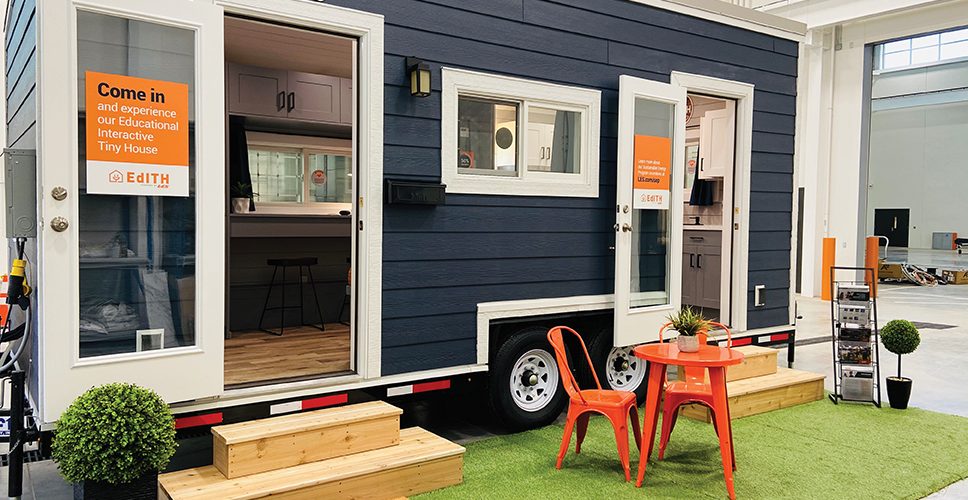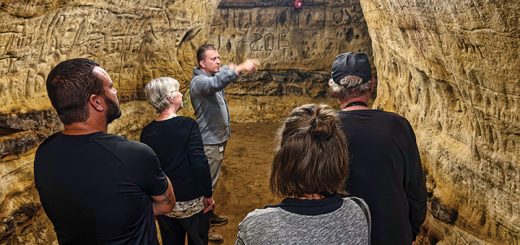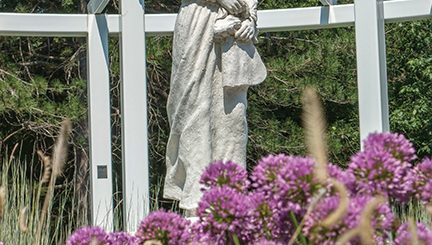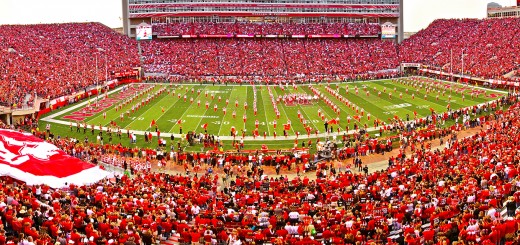What does it mean to be Public Power?

For more than 55 years, Lincoln Electric System has served its community as a locally owned and governed public power utility. As a not-for-profit electric utility, LES is based on the model of local people serving local people, earning a reputation for safe, reliable and affordable electric service.
Being a public power utility has many benefits. According to data collected from LES’ competitive market study—a study that compares electric performance metrics for LES and Nebraska to performance metrics for a curated list of 87 U.S. cities, all 50 states and the District of Columbia—the company offers some of the lowest costs and most reliable service in the nation. LES continues outperforming other utilities, powering everything in the average residential customer’s home for less than three dollars per day.
Another benefit of public power is customer input. LES’ Administrative Board comprises nine local citizens appointed by the Lincoln mayor and confirmed by the Lincoln City Council. Board members are charged with overseeing the operations and finances of the utility. The Lincoln City Council has final approval of LES’ rates, budget and debt financing.
Customers can share their input and feedback on policies that affect costs, operations, services, economic development and the environment at monthly public board meetings and public events throughout the year.
One example is the utility’s Integrated Resource Plan—a blueprint developed every five years to help forecast the best power resource mix. In 2022, LES developed a new IRP and welcomed customers to three public meetings and two workshops to engage and comment on the effort. This recent plan is unique because it is the first IRP to be shaped by LES’ robust decarbonization goal to eliminate carbon dioxide production from its generation portfolio by 2040—another effort formed with public input.
Commitment to community
LES is committed to investing in the community, and it does so in various ways, including educational outreach programs, events, classroom presentations, sustainability efforts and employee involvement.
In 2021, LES provided educational opportunities through community partnerships with 20 organizations, including the Lincoln STEM Ecosystem, Lincoln Children’s Museum, Lincoln Children’s Zoo, Lincoln Public Schools, The Career Academy, the University of Nebraska–Lincoln and others.
One of the community’s most highlighted events is Zoo Lights Powered by LES, a partnership with the Lincoln Children’s Zoo. Each winter, the children’s zoo is transformed into one of the largest light displays in the Midwest, displaying more than 250,000 energy-efficient LED lights. LES hosts educational Energy Nights during the event highlighting energy-saving tips for the home. All proceeds from the event go directly to the zoo to care for animals.
As a public power utility, LES is not in business to make a profit, so it is not subject to income taxes like private companies. Instead, LES contributes millions of dollars to the community it serves through an annual in lieu of tax payment and City Dividend. In 2021, LES distributed $12.6 million to Lincoln Public Schools, Lancaster County and the cities of Lincoln and Waverly.
It isn’t just the company that gives back. LES employees donate their time and money to numerous community events. From Junior Achievement classroom presentations that help prepare young people for success to neighborhood cleanups and campaign fundraisers, employees give back in a big way. Last year, employees raised more than $100,000 toward the United Way Campaign, a workplace giving campaign that distributes funds to agencies that aid people in need and raised nearly $6,000 at the Junior Achievement Bowl-A-Thon.
Thinking sustainably
LES offers programs such as the Sustainable Energy Program to incentivize customers to decrease energy use. Through the program, residential and business customers make energy-efficiency improvements that can help them save money, reduce the need for energy during peak periods, and help delay the need to build additional high-cost power plants that serve the community.
Similarly, LES Peak Rewards is a demand response program that allows customers to connect their eligible thermostats and allows LES to adjust it during peak demand periods. More than 500 customers enrolled in Peak Rewards last year, with 2,300 thermostats enrolled, representing 3 megawatts of controllable load.
LES’ Educational Interactive Tiny House is a mobile trailer that shows residential customers how to make smart, sustainable energy choices. It features interactive displays that show sustainable energy technologies included in the LES Sustainable Energy Program and LES Peak Rewards.
In every way, LES continues to strengthen its foundation for long-term growth and success. Every decision is made with the community’s interests in mind through the promotion of energy efficiency and demand reduction, and investments in renewable energy.
LES takes pride in supporting local events and organizations that help enhance the quality of life for everyone in the community. Learn more about LES and its programs at LES.com.




Recent Comments